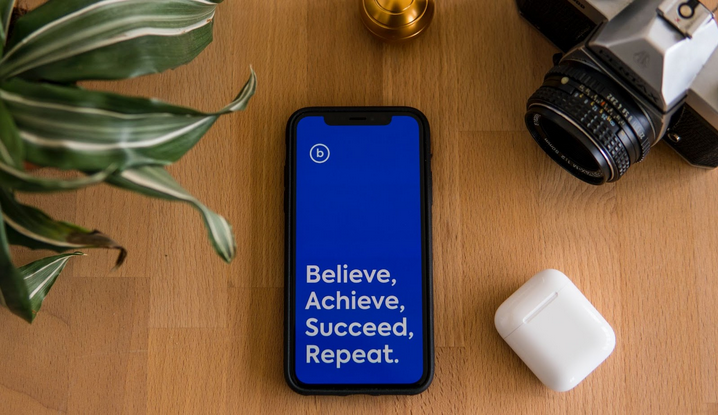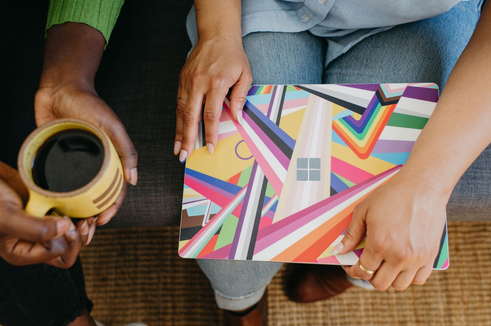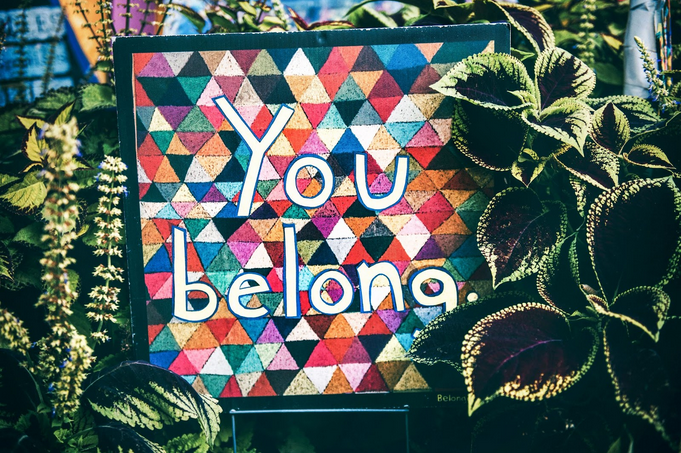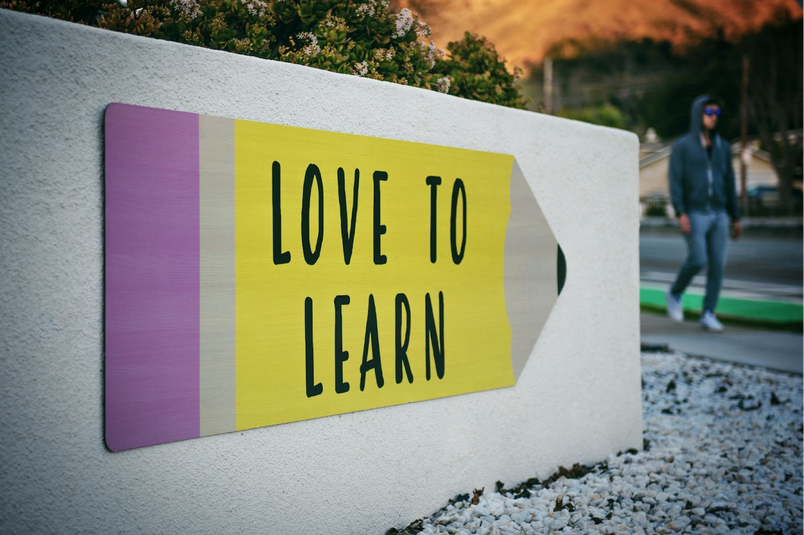Learning content overview
| Site: | ACTin'YouTH |
| Course: | ACTin’YOUth – A blended learning journey about theatre methodology for social inclusion |
| Book: | Learning content overview |
| Printed by: | Guest user |
| Date: | Monday, 5 January 2026, 5:01 AM |
Description
Duration: 45 minutes
Table of contents
- 1. Welcome and course overview
- 2. Learning objectives
- 3. Blended theatre workshops
- 3.1. What are blended theatre workshops?
- 3.2. The importance of theatre methodology for social inclusion
- 3.3. What you can achieve with blended theatre workshops
- 3.4. Blended theatre workshops as a powerful tool for promoting social inclusion
- 3.5. Blended Theatre workshops for youth with different cultural backgrounds and fewer opportunities
- 3.6. Benefits and challenges of blended learning
- 4. Technical requirements
- 5. Conclusion
1. Welcome and course overview
|
In this chapter, we introduce the concept of blended theatre workshops and explain the importance of theatre methodology for social inclusion. We also provide an overview of the goals and objectives of the course, and outline the methodological and technical requirements for participating in the workshops. By the end of this chapter, students will have a clear understanding of what blended theatre workshops are and what they can hope to achieve through them. They will also be equipped with the necessary technical knowledge to participate in the course. |
|
2. Learning objectives
 |
Understanding of the goals and objectives of the courseLearning objectives of this chapter
In this chapter, we will:
In addition to discussing the methodology behind blended theatre workshops, we will also examine their social impact. We believe that theatre has the power to promote social inclusion and create positive change in communities. By the end of this course, we hope that you will share our enthusiasm for this innovative approach to theatre education. Before we dive into the details, it's important to establish some basic technical requirements for participating in blended theatre workshops. These may include access to a reliable internet connection, a computer or tablet with a camera and microphone, and basic video conferencing software. We will provide more detailed guidance on technical requirements in later chapters. Overall, we are excited to introduce you to the world of blended theatre workshops, and we hope that this course will serve as a valuable resource for anyone interested in this dynamic and engaging form of education. |
2.1. Familiarisation with trainers and students involved in the workshops
A forum where trainers and students present themselves.
2.2. Overview of methodological aspects for online and blended learning
Online and blended learning rely on a variety of tools and techniques to create a dynamic and engaging learning experience. One of the most important aspects of online and blended learning is the use of multimedia resources, such as videos, audio recordings, and interactive simulations. These resources help to keep learners engaged and provide a more immersive learning experience.
Another important aspect of online and blended learning is the use of collaborative tools, such as discussion forums, group projects, and virtual classrooms. These tools allow learners to interact with each other and with their instructors, providing a more social and interactive learning environment.
When it comes to blended theatre workshops, the use of online and blended learning methods can provide a unique opportunity to explore theatre in new and exciting ways. For example, online forums can be used to discuss and analyze plays, while virtual classrooms can be used to practice acting techniques and explore the use of technology in theatre.
However, it's important to note that online and blended learning methods are not a replacement for in-person learning. While these methods can be effective in certain contexts, they are not suitable for all types of learning. It's important to carefully consider the learning objectives and content of a course when deciding whether online or blended learning methods are appropriate.
2.3. Outline of technical requirements for participating in the workshops
Access to a reliable internet connection, a computer or tablet.
3. Blended theatre workshops
 |
What is blended learning"Blended learning, also known as technology-mediated instruction, web-enhanced instruction, or mixed-mode instruction, is an approach to education that combines online educational materials and opportunities for interaction online with physical place-based classroom methods. |
3.1. What are blended theatre workshops?
 |
Blended theatre workshops are a unique approach to theatre education that combine online and in-person learning to create an immersive and interactive learning experience. They allow participants to access course content and engage with fellow students and trainers in both virtual and physical spaces. Blended theatre workshops typically involve a mix of synchronous and asynchronous learning activities. Synchronous activities include live online classes, rehearsals, and performances, while asynchronous activities may include pre-recorded lectures and exercises, online discussions, and independent study. The purpose of blended theatre workshops is to provide a flexible and dynamic learning environment that can cater to the needs and preferences of different learners. By combining the benefits of online and in-person learning, blended theatre workshops can help participants to develop a wide range of skills, including acting, directing, writing, design, and technical production. Blended theatre workshops can be applied to a variety of theatre disciplines and contexts, from community theatre to professional training programs. They are especially useful for theatre practitioners and educators who wish to offer a high-quality learning experience to a diverse and geographically dispersed student body. |
3.2. The importance of theatre methodology for social inclusion
 |
Theatre methodology can be a powerful tool for promoting social inclusion and driving positive social change. In this chapter, we will explore the various ways in which theatre can be used to foster empathy, tolerance, and understanding, and to promote the inclusion of marginalized communities. Theatre has a long history of being used to create social change. From the Greek tragedies to the works of Shakespeare, theatre has always been a means of reflecting on and engaging with society. Today, theatre can still be used to promote social inclusion by providing a platform for marginalized communities to tell their stories and share their experiences. Theatre can also be used to educate people about the challenges faced by these communities, and to promote empathy and understanding. However, there are also challenges and limitations to using theatre as a tool for social change. Theatre can sometimes reinforce stereotypes and perpetuate harmful narratives, and it is important to approach it with sensitivity and awareness. In addition, the impact of theatre on social change can be difficult to measure, and it is important to be realistic about the limitations of this approach. Overall, theatre methodology can be a powerful tool for promoting social inclusion and driving positive social change. By providing a platform for marginalised communities to share their stories and promoting empathy and understanding, theatre can be a force for good in the world. |
3.3. What you can achieve with blended theatre workshops
 |
|
| Blended theatre workshops offer a unique learning experience that combines the art of theatre with innovative technology. In this chapter, we will explore the various achievements and benefits that can be gained through participating in these workshops. | |
 |
Developing Creativity and Artistic SkillsBlended theatre workshops offer a platform for participants to develop their creative and artistic skills. Through the use of theatre techniques and exercises, participants can learn to express themselves and communicate their thoughts and feelings effectively. The use of technology also allows for the exploration of new and innovative ways to approach theatre, giving participants the freedom to experiment and push the boundaries of their creativity. |
Building Confidence and Self-Esteem
Participating in blended theatre workshops can help build confidence and self-esteem. Through the collaborative nature of theatre, participants learn to work together as a team, developing their communication and leadership skills. The use of technology also provides a safe and supportive environment for participants to express themselves without fear of judgement or rejection. |
 |
 |
Fostering Social Inclusion and Cultural AwarenessBlended theatre workshops can also promote social inclusion and cultural awareness. The use of technology allows for the participation of individuals from diverse backgrounds and cultures, providing a platform for the exchange of ideas and perspectives. By exploring different cultural themes and perspectives through theatre, participants can develop a greater understanding and appreciation for diversity, building empathy and compassion for others. |
Enhancing Communication and Language SkillsParticipating in blended theatre workshops can also enhance communication and language skills. The use of theatre exercises and techniques can help participants develop their verbal and non-verbal communication skills, as well as their ability to listen and respond to others. The use of technology also allows for the exploration of different languages and accents, providing opportunities for participants to develop their language skills in a fun and engaging way. |
 |
 |
Promoting Personal and Professional DevelopmentBlended theatre workshops can also promote personal and professional development. Through the development of creative and artistic skills, as well as communication and leadership skills, participants can gain valuable experience and knowledge that can be applied to both their personal and professional lives. The use of technology also provides opportunities for participants to explore and develop new skills, such as digital media and production. |
| In conclusion, blended theatre workshops offer a range of achievements and benefits that can enrich the lives of participants in various ways. Whether it's developing creativity and artistic skills, building confidence and self-esteem, fostering social inclusion and cultural awareness, enhancing communication and language skills, or promoting personal and professional development, blended theatre workshops provide a dynamic and innovative approach to learning that can have a lasting impact. |
|
3.4. Blended theatre workshops as a powerful tool for promoting social inclusion
 |
|
| Blended theatre workshops can be especially effective in promoting social inclusion. By combining online and in-person learning, blended theatre workshops can reach a wider audience and create a more immersive and interactive learning experience. They can also provide a safe and inclusive space for participants to explore difficult topics and engage with diverse perspectives. Through the use of theatre methodology, participants are encouraged to explore their personal identities, develop empathy for others, and gain a deeper understanding of social issues. In this chapter, we will explore some of the ways in which blended theatre workshops can be used to promote social inclusion and create positive change in communities. |
|
 |
Building Bridges Across CulturesBlended theatre workshops provide a unique opportunity for individuals from different cultural backgrounds to come together and collaborate on a shared creative project. Through the process of creating a performance together, participants are able to break down barriers and build relationships based on mutual respect and understanding. This can be especially powerful for participants who may have had limited exposure to other cultures in their lives. |
Developing Empathy and Understanding
Blended theatre workshops provide a safe space for participants to explore difficult topics such as discrimination, inequality, and prejudice. Through the use of theatre techniques, participants can step into the shoes of others and gain a deeper understanding of the experiences of those who are different from them. This can lead to increased empathy and a greater commitment to promoting social justice. |
 |
Fostering Confidence and Self-EsteemBlended theatre workshops provide an opportunity for participants to develop their creative skills and express themselves in a supportive environment. For participants who may have faced marginalization or discrimination in their lives, this can be a powerful experience that helps to build confidence and self-esteem. |
|
Creating Social ChangeThrough the use of theatre methodology, blended theatre workshops can be used to raise awareness about social issues and promote positive change in communities. By creating performances that address social issues, participants can inspire others to take action and become agents of change. |
 |
| Overall, blended theatre workshops have the potential to promote social inclusion and create positive change in communities. By providing a space for individuals from different backgrounds to come together, developing empathy and understanding, fostering confidence and self-esteem, and creating social change, blended theatre workshops can be a powerful tool for building more inclusive and equitable societies. |
|
3.5. Blended Theatre workshops for youth with different cultural backgrounds and fewer opportunities
 |
|
| Blended theatre workshops can be a great way for young people from diverse backgrounds to connect and engage with each other. Through theatre techniques, participants can explore their differences and similarities, and develop empathy and understanding, which can promote social cohesion. Blended theatre workshops can also provide a platform for young people with fewer opportunities to share their stories, build their self-confidence, and develop communication and teamwork skills. The benefits of blended theatre workshops include increased self-confidence, improved communication skills, enhanced empathy and understanding, teamwork and collaboration, and personal and social development. Blended theatre workshops can also provide a safe and supportive environment for young people with fewer opportunities. This can be especially important for those who may have experienced discrimination or exclusion in other settings. By participating in a welcoming and inclusive environment, they can develop a sense of belonging and build positive relationships with others. |
|
 |
Blended theatre workshops offer many benefits for youth, particularly those with different cultural backgrounds and fewer opportunities. Here are some of the key benefits:
|
3.6. Benefits and challenges of blended learning
| Blended learning, which combines traditional face-to-face classroom teaching with online learning, has become increasingly popular in recent years. While it offers many benefits, it also presents unique challenges that must be addressed. In this article, we will explore the benefits and challenges of blended learning. | |
 |
Benefits of blended learningOne of the main benefits of blended learning is its flexibility. It allows learners to access course material and complete assignments at their own pace, which can be especially beneficial for those with busy schedules or who may not be able to attend traditional in-person classes. Additionally, blended learning can be customized to meet the needs of individual learners, allowing them to focus on specific areas of interest or to learn in a way that suits their learning style. Another advantage of blended learning is that it can incorporate a variety of teaching methods, such as interactive multimedia content, group discussions, and in-person classroom activities. This can enhance engagement and knowledge retention among learners, as well as provide opportunities for collaboration and peer learning. Challenges of blended learningDespite its benefits, blended learning also presents unique challenges. One of the main challenges is ensuring that learners have access to reliable technology and a stable internet connection, which can be especially difficult in areas with limited infrastructure or in low-income communities. Additionally, blended learning can be isolating for some learners who may prefer the social interaction and support provided by traditional in-person classrooms. Another challenge of blended learning is ensuring that learners are able to stay motivated and on track with their studies. Without the accountability and structure provided by traditional classrooms, some learners may struggle to stay engaged and complete assignments on time. Additionally, the use of technology can be a distraction for some learners, which can negatively impact their learning experience. ConclusionBlended learning has many benefits, including flexibility, customization, and a variety of teaching methods. However, it also presents unique challenges that must be addressed, such as ensuring access to technology and providing adequate support to keep learners motivated and engaged. By understanding and addressing these challenges, blended learning can be a powerful tool for providing accessible and effective education. |
4. Technical requirements
Basic technical requirements for participating in blended theatre workshops
- a digital device (PC, laptop, tablet, smartphone) able to connect to internet
- stable connection to internet
- updated internet browser (recommended Mozilla Firefox)
- access to https://training.actinyouth.eu/
- use Guest access in this course using password: ACTinYOUTH2023
5. Conclusion
| The use of multimedia resources and collaborative tools in online and blended learning can create a more engaging and interactive learning environment, but it's important to consider the context and objectives of the course. Blended learning is an educational approach that combines online materials and interactions with traditional classroom methods, allowing for student control over time, place, path, or pace. |
|
 |
Blended theatre workshops combine online and in-person learning for an immersive and flexible learning environment, providing a range of skills and benefits to participants, and are applicable to various theatre disciplines and contexts. Blended theatre methodology can promote social inclusion and social change by using theatre to reflect on society, educate about challenges faced by marginalized communities, and provide a safe and inclusive space for participants to explore difficult topics, although it's important to approach it with sensitivity and be realistic about its limitations. Blended theatre workshops provide a unique learning experience that combines theatre techniques with innovative technology, and offer benefits such as developing creativity and artistic skills, building confidence and self-esteem, fostering social inclusion and cultural awareness, enhancing communication and language skills, and promoting personal and professional development. Blended theatre workshops use theatre methodology to promote social inclusion by building bridges across cultures, developing empathy and understanding, fostering confidence and self-esteem, and creating social change. Blended theatre workshops can provide young people with different cultural backgrounds and fewer opportunities a safe and supportive environment to build self-confidence, communication skills, empathy, teamwork, and personal and social development, which can help to create a more inclusive and equitable society. Blended learning, a combination of traditional face-to-face teaching and online learning, has become popular due to its flexibility, customization, and variety of teaching methods, but it also presents challenges such as ensuring access to technology and providing adequate support to keep learners engaged and motivated. |
